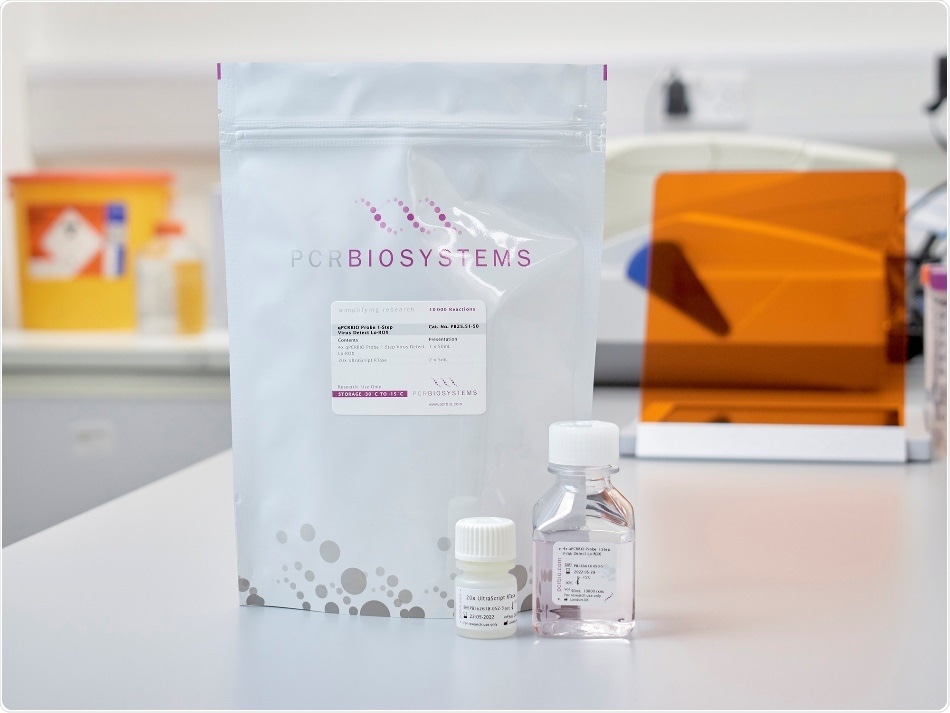PCR Biosystems, the UK-based PCR experts, today announced the launch of qPCRBIO Probe 1-Step Virus Detect, a high-concentration 4x RT-qPCR kit designed specifically for ultra-sensitive, high-throughput detection of viral RNA sequences, including SARS-CoV-2. The new kit, which marks the latest addition to PCR Biosystems’ specialized RT-qPCR offering, enables users to add more sample to their reactions to boost analytical sensitivity, even when working with small volume reactions.

New qPCRBIO Probe 1-Step Virus Detect.
Consistent with their commitment to supply global healthcare systems with the critical reagents required in the fight against COVID-19, PCR Biosystems has validated the new qPCRBIO Probe 1-Step Virus Detect kit for qualitative detection of the SARS-CoV-2 nucleic acid. Validation has been performed using the Charité (Germany) primer-probe sequences targeting the RdRp and E genes, as well as the Centers for Disease Control and Prevention (USA) recommended sequences targeting specific regions of the N gene. The kit is ideally suited to high-throughput testing of COVID-19 clinical samples, either with laboratory developed assays or as a component of diagnostic testing kits.
RT-qPCR reagent kits are pivotal for successful research and molecular diagnostic projects that aim to establish the course of viral infections. Drawing on our PCR expertise and our commitment to delivering best-in-class technologies, we developed qPCRBIO Probe 1-Step Virus Detect to offer researchers and diagnostic kit manufacturers flexibility in their assay development and ultimate confidence in the quality and accuracy of the results generated."
Alex Wilson, Co-Founder of PCR Biosystems
qPCRBIO Probe 1-Step Virus Detect has been developed with the company’s UltraScript Reverse Transcriptase enzyme, benefiting users with fast and efficient cDNA synthesis over a wide range of reaction temperatures. Reverse transcription can be performed in only five minutes and at temperatures up to 55ºC, enhancing the detection of difficult viral RNA sequences. The PCR step is powered by PCRBIO HS Taq DNA Polymerase, which employs antibody-mediated hot start technology for specific amplification of virus-derived cDNA, with improved tolerance to the common PCR inhibitors found in clinical samples. Combined with a specially formulated buffer system developed using smart screen technology, qPCRBIO Probe 1-Step Virus Detect gives accurate and ultra-sensitive RT-qPCR over a broad range of template concentrations.
qPCRBIO Probe 1-Step Virus Detect is multiplex-compatible and can be used with all qPCR instruments. Furthermore, this universal kit is developed for use with a variety of probe technologies, including TaqMan®, Scorpions® and molecular beacon probes, for optimal application flexibility.
The introduction of qPCRBIO Probe 1-Step Virus Detect comes as PCR Biosystems continues to scale up operations to ensure uninterrupted global supply of RT-qPCR reagents to support COVID-19 testing and diagnostic kit development.